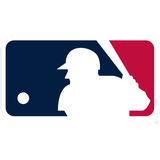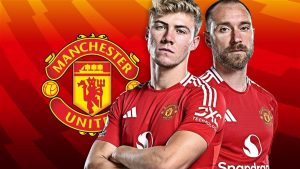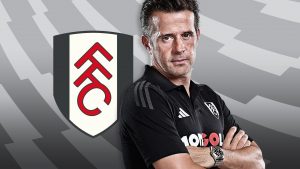Which MLB phenoms are next in line for long-term extensions?


By Jake Mintz
FOX Sports MLB Writer
On Wednesday, the Atlanta Braves announced that they’d agreed to an eight-year, $72 million extension with rookie outfielder Michael Harris II. The contract includes two team options worth another $35 million, which, if exercised, would push the deal through the end of the 2032 season.
I don’t even know what I’m doing tomorrow.
The deal is yet another in a long line of long-term pacts between the Braves and their young superstars. Earlier this season, they inked 25-year-old third baseman Austin Riley to a 10-year, $212 million extension. Last offseason they gave Matt Olson eight years for $168 million after trading for the 28-year-old first baseman. In a span of nine days back in April 2019, they extended Ronald Acuña Jr. and Ozzie Albies to eight- and seven-year deals, respectively.
Michael Harris II highlights top rookies of the week
In a June episode of “Flippin’ Bats,” Ben Verlander discussed whether Michael Harris II is the best rookie in baseball this season.
Those five bats keep Atlanta’s window of contention jammed open for the foreseeable future.
The Harris deal is also notable in that it comes just 70 games into his big-league career. Called up on May 28, the 21-year-old Atlanta native has been spectacular, slashing .288/.327/.498 with 12 homers and 14 steals while playing phenomenal defense in center field. Moving forward, he’s a legitimate 30/30 threat.
The extension is understandable for both parties. As a rookie, Harris is still three years away from any real payday in arbitration. Between now and then, his performance could fall off a cliff. Remember friends: For every José Ramírez extension, there’s a Scott Kingery extension. But you can never hate on a young player for guaranteeing himself generational wealth. Harris has earned that right. The Braves have their center fielder of the future, and a homegrown and hometown one at that.
Some extensions are exploitative, some are not. Some take unfair advantage of young players, capping their overall earnings far below their true value. Some offer players financial stability and keep them around an organization for years to come.
Harris is far from the last young, pre-arbitration player around the league right now who might be tempted by the stability of an extension. Let’s swing across the land of MLB and look at other notable hitters (pitchers are a different, more volatile bag of worms) to see who could be the next big name to lock it in long-term.
After a rough first month, Baltimore’s rookie backstop has very much figured things out and might already be the best catcher in baseball. (The only one I’d take over him right now would be Will Smith). Since June 10, Rutschman has a .911 OPS, the 13th-best mark in baseball over that time. Most impressively, he has walked at a 15.2% clip during that stretch, good for the eighth best in the game. That’s a ludicrous accomplishment for a rookie catcher.
Rutschman won’t hit free agency until after the 2028 season, but it’s never too early to think about the future; the Manny Machado years absolutely whizzed by in Baltimore. But pre-arbitration extensions for generational catchers are rare, because of how injury-prone the position is and how catchers tend to fall off offensively before their small-gloved peers. Remember how good Jonathan Lucroy was for a hot second?
Orioles’ Adley Rutschman makes long-awaited MLB debut
Ben Verlander talks about Adley Rutschman’s MLB debut and how young superstars are giving their small-market fan bases hope for the future.
Salvador Pérez is the only big-name catcher in recent memory to ink an extension that early in his career, but that five-year, $7 million deal he signed with Kansas City after his first two months in the bigs is generally considered the most exploitative contract ever. It’s so criminal that you can’t use it as a comp. The more realistic comparison for Rutschman is the eight-year, $167 million contract Buster Posey signed with the Giants ahead of his first arbitration year.
We haven’t seen the Mike Elias Baltimore regime offer any extensions to this new generation of Good Orioles, so it’s hard to say where things stand with Rutschman. The only track record is the José Altuve extension that Elias presumably oversaw during his time with the Astros.
Julio Rodríguez, CF, Mariners
It’s honestly difficult to conceive what a Rodríguez extension would look like. Like Harris, he’s fewer than 105 games into his MLB career, but it’s clear to anyone who watched the Home Run Derby that Julio is That Guy. With Fernando Tatis Jr. in ringworm-related timeout for the foreseeable future, Rodríguez assumes the overused title of the Next Great Face of Baseball.
Through his first 431 plate appearances, he has 19 homers, 21 steals and a 131 OPS+, while providing surprisingly good defense in center. He is still only 21 years old. A Rodríguez extension would likely rival, if not surpass, the massive 14-year, $340 million deal Tatis received from the Padres.
Can Julio Rodríguez carry Mariners to postseason?
After Julio Rodríguez’s Home Run Derby show, Ben Verlander was joined by FOX Sports MLB writers Jake Mintz and Jordan Shusterman to discuss if he can help the Mariners break their postseason drought.
If a deal of that magnitude for a guy with less than a season under his belt seems preposterous, well, it kind of is. But if the Mariners don’t lock up Rodríguez now, this could one day, years from now, turn into a Juan Soto situation. Sure, the Mariners could wait a few years and take advantage of Rodríguez’s pre-arb years, in which they get to pay him under a million bucks, but if they open negotiations just before arbitration, there’s a good chance, like in Soto’s case, that the price could absolutely skyrocket. Therein lies the game.
We know that the Mariners offered Rodríguez’s outfield mate Jarred Kelenic a multi-year extension before the 2020 season. That offer, which Kelenic declined, and the recent J.P. Crawford contract extension shows that the Mariners are, at the very least, willing to chat.
Bobby Witt Jr., SS, Royals
Witt hasn’t exploded offensively like his rookie counterparts in Seattle and Baltimore, but he has still showcased the talent and raw tools that put him at the top of prospect lists heading into 2022.
The good news: His max exit velocity of 113.7 is in the 93rd percentile league wide, and Statcast ranks his sprint speed as literally the fastest in baseball. The bad news: The metrics think he’s an abysmal defender at shortstop, and he’s walking only at a 4.9% clip. Those imperfections are a double-edged sword: His immature swing decisions make him a bigger risk for a long-term deal but also mean an extension right now would be much cheaper for the Royals.
Without a true offensive breakout, Witt would probably get less than the 10-year, $202 million extension that Wander Franco received from Tampa Bay last offseason. That’s probably a risk worth taking for Kansas City, a small-market team that has always operated with a limited payroll. And GM Dayton Moore loves locking up “his guys” long term.
Still, I’d think that both KC and Witt will wait a bit just to see what happens with his bat. He could either become a solid defensive shortstop with elite speed and outrageous power, or a third baseman who never walks.
Oneil Cruz, SS, Pirates
For precedent, let’s see what type of extensions the other 6-foot-8 shortstops got. Oh, you’re telling me that there haven’t been any other 6-foot-8 shortstops? Got it, very cool.
Yeah, I have no idea on this one.
Cruz has been jaw-dropping at times, capable of feats no other players could dream of, but there’s also been a ton of swing and miss in his game. Even after his extended big-league run this year, we still don’t really know what type of player he’ll become.
Breaking down the potential of Oneil Cruz
Ben Verlander discusses the potential of baseball’s new phenom, shortstop Oneil Cruz of the Pittsburgh Pirates.
As a prospect, Cruz was borderline unscoutable because his profile was so bizarre and unique. That also makes him incredibly difficult to picture as an extension candidate. How much do you pay for a unicorn who might actually be a horse? That being said, Ke’Bryan Hayes‘ recent long-term deal with the Buccos (eight years, $70 million) makes a Cruz deal somewhat more likely.
Vladimir Guerrero Jr., 1B, Blue Jays
Vladdy is a slightly different case than the rest of these cats considering he’s already in his first year of arbitration. But because of service time manipulation, he won’t be a free agent until after the 2025 season.
The best comparison to any Guerrero deal is probably Freddie Freeman‘s first contract. When Freeman signed that eight-year, $135 million deal with the Braves before the 2014 season, he was just 24 years old and fresh off a fifth-place finish in the NL MVP race.
Vladimir Guerrero Jr. goes yard vs. Yanks
On Thursday, Vladimir Guerrero Jr. hit a three-run homer in the Toronto Blue Jays’ 9-2 victory over the New York Yankees.
Though he has taken a slight step back in 2022 after his MVP runner-up campaign last year, the 23-year-old Guerrero has been markedly better in his first four seasons than Freeman was. That dynamic, plus almost a decade’s worth of inflation and rising salaries, means that Guerrero could command well beyond that Freeman contract.
In fact, the deal would likely average above the $35 million per year that Anthony Rendon got from the Angels in 2019.
Jake Mintz is the louder half of @CespedesBBQ and a baseball writer for FOX Sports. He’s an Orioles fan living in New York City, and thus, he leads a lonely existence most Octobers. If he’s not watching baseball, he’s almost certainly riding his bike. You can follow him on Twitter @Jake_Mintz.
Get more from Major League Baseball Follow your favorites to get information about games, news and more.











